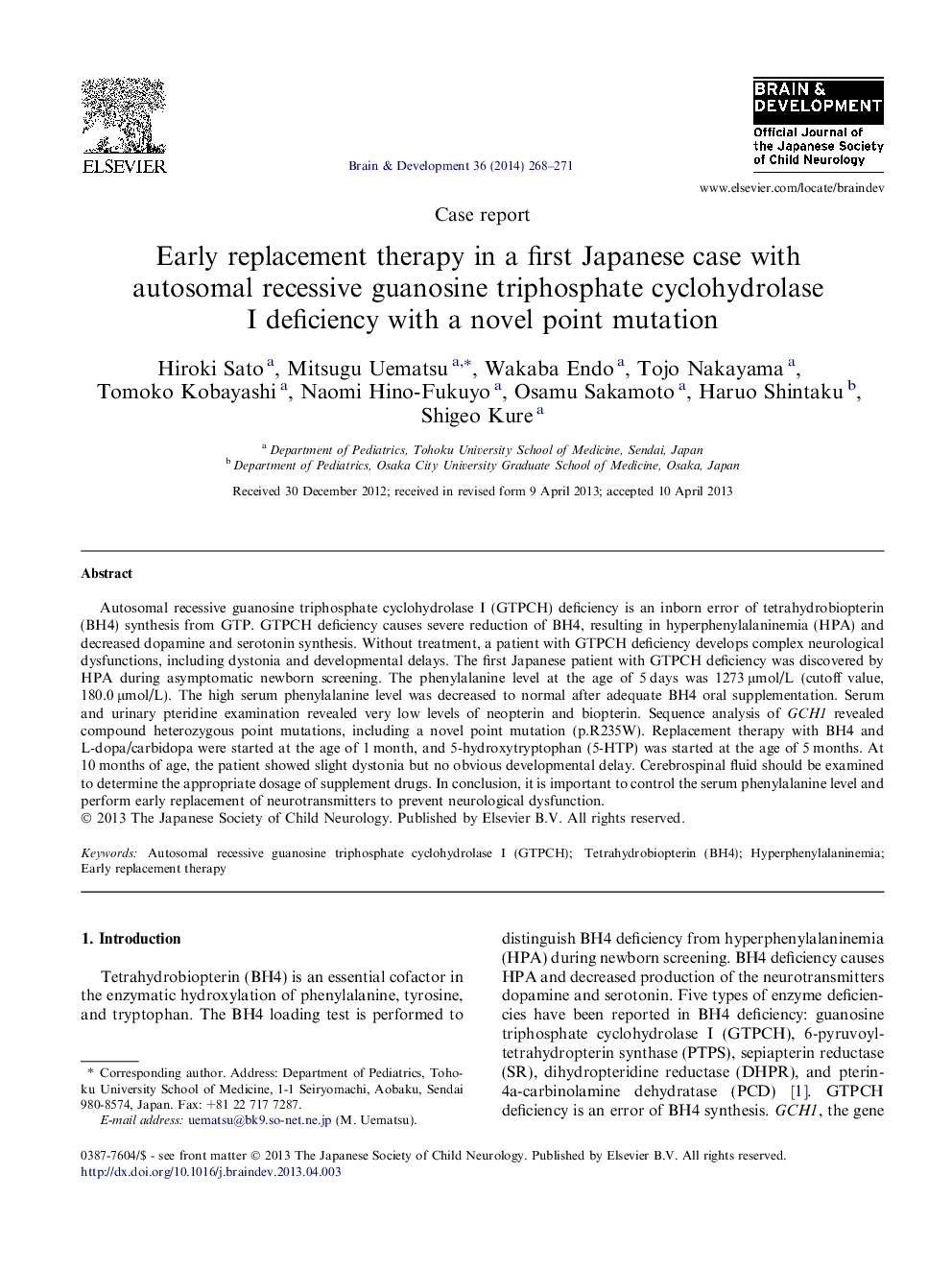| Article ID | Journal | Published Year | Pages | File Type |
|---|---|---|---|---|
| 3037064 | Brain and Development | 2014 | 4 Pages |
Autosomal recessive guanosine triphosphate cyclohydrolase I (GTPCH) deficiency is an inborn error of tetrahydrobiopterin (BH4) synthesis from GTP. GTPCH deficiency causes severe reduction of BH4, resulting in hyperphenylalaninemia (HPA) and decreased dopamine and serotonin synthesis. Without treatment, a patient with GTPCH deficiency develops complex neurological dysfunctions, including dystonia and developmental delays. The first Japanese patient with GTPCH deficiency was discovered by HPA during asymptomatic newborn screening. The phenylalanine level at the age of 5 days was 1273 μmol/L (cutoff value, 180.0 μmol/L). The high serum phenylalanine level was decreased to normal after adequate BH4 oral supplementation. Serum and urinary pteridine examination revealed very low levels of neopterin and biopterin. Sequence analysis of GCH1 revealed compound heterozygous point mutations, including a novel point mutation (p.R235W). Replacement therapy with BH4 and L-dopa/carbidopa were started at the age of 1 month, and 5-hydroxytryptophan (5-HTP) was started at the age of 5 months. At 10 months of age, the patient showed slight dystonia but no obvious developmental delay. Cerebrospinal fluid should be examined to determine the appropriate dosage of supplement drugs. In conclusion, it is important to control the serum phenylalanine level and perform early replacement of neurotransmitters to prevent neurological dysfunction.
